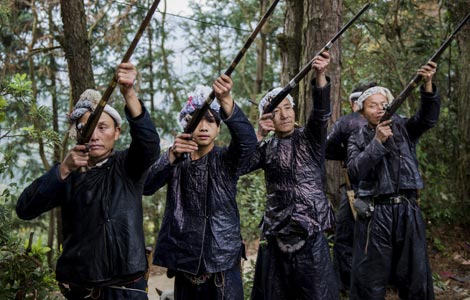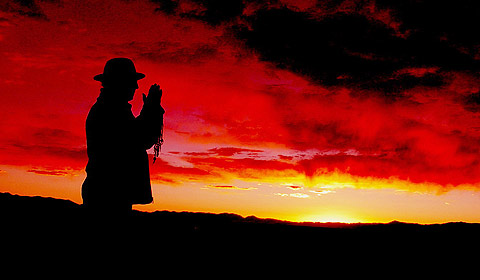Twin goals drive subway fare rise
Updated: 2013-12-19 00:46
By Zheng Xin (China Daily)
|
|||||||||||
With an increase in subway fares looming in Beijing, the city's traffic authority has vowed to keep the cost affordable for most residents, even as it works to switch more commuters to street-level buses.
"We need to make sure that most residents will be able to afford rail transit, while easing the pressure of huge volumes of people during peak hours," said Zhang Wenqiang, head of the rail transit department of the Beijing Transport Commission.
Beijing announced a plan earlier this month to change its current low-cost subway ticket system, with the twin goals of reducing heavy peak traffic and holding down the rising cost of transportation subsidies.
The commission said it will expand bus routes and also make bus riding more comfortable and convenient, in hopes of shifting a portion of commuters from the subway to the surface.
"Rail transit has seen a 30 percent increase in passenger volume each year, with many carriages fully loaded in rush hours," said Ma Boyi, spokesman for the commission.
"At the same time, buses have seen a decrease in passenger volume, with only 13 million trips each day, even though the daily passenger capacity is 17 million trips." According to research conducted by the commission, more than 60 percent of trips during peak hours are for commuting, and 11.8 percent are business trips.
Nearly half of all subway trips are made during peak hours.
Zhang, the rail department head, did not elaborate on the research but said the government will make sure rail transit is still the top choice for long-distance commuters.
"We need to take many factors into consideration," Zhang said.
Duan Liren, a transportation expert from Chang'an University in Xi'an, Shaanxi province, said further assessments should be done because of the increasing gap between the subway's rising operating costs and its low fares.
Rising subsidies for public transportation have placed a greater financial burden on the city, Duan said.
The subsidy climbed from 12.8 billion yuan ($2.1 billion) in 2010 to 17.5 billion yuan in 2012. It is expected to hit 18 billion yuan by the end of 2014.
Since 2007, the city has used a low-price strategy to encourage the use of public transportation, charging just 2 yuan for a subway trip regardless of its distance, and 0.4 yuan for a bus trip if using a public transportation smart card.
zhengxin@chinadaily.com.cn
Related Stories
Beijing's mooted subway fare hike sparks controversy 2013-12-18 20:51
Trending across China 2013-12-18 09:00
Netizens angered by comments on 'aimless' subway use 2013-12-17 21:40
Santa brings holiday cheer to Shenzhen subway 2013-12-17 16:26
Subway fare increase considered 2013-12-16 09:44
Beijing increases subway security 2013-12-16 14:30
Today's Top News
Putin says to pardon jailed tycoon Khodorkovsky
China, Britain face new opportunities
Military plays down naval 'near-miss'
Overseas investing sees large jump
Twin goals drive subway fare rise
More protection for Sanjiangyuan
Monaco and Shanghai jointly to grow yachting biz
Vast deposits of 'flammable ice' found
Hot Topics
Lunar probe , China growth forecasts, Emission rules get tougher, China seen through 'colored lens', International board,
Editor's Picks

|

|

|

|

|

|





